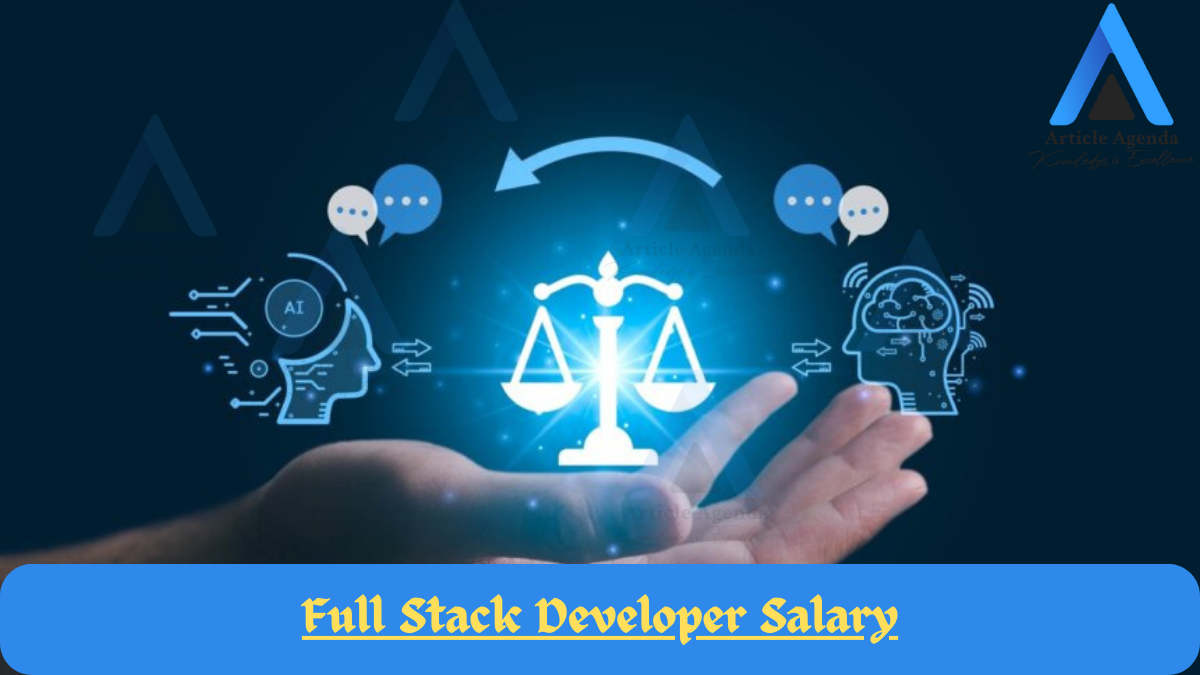Introduction to Full Stack Development
As an experienced human writer, I’m excited to dive into the topic of full stack developer salary. Full stack development has become increasingly in-demand in recent years, with companies seeking professionals who can seamlessly navigate the entire software development lifecycle.
In this comprehensive article, we’ll explore the factors that influence full stack developer salaries, analyze industry averages, and discuss strategies for negotiating higher compensation. Whether you’re considering a career in full stack development or looking to optimize your earning potential, this guide will provide you with valuable insights.
Table of Contents
- Introduction to Full Stack Development
- Exploring the Role of a Full Stack Developer
- Factors that Influence Full Stack Developer Salaries
- Average Full Stack Developer Salary in the Industry
- Full Stack Developer Salary Based on Experience
- Full Stack Developer Salary Based on Location
- Additional Factors that Impact Full Stack Developer Salaries
- How to Negotiate a Higher Salary as a Full Stack Developer
- Full Stack Developer Salary Trends in the Future
- Conclusion: Is a Career as a Full Stack Developer Financially Rewarding?
Exploring the Role of a Full Stack Developer
A full stack developer is a software engineer who possesses expertise in both the front-end and back-end components of a web application or software system. They are proficient in a wide range of technologies, including:
- Front-end development: HTML, CSS, JavaScript, and various front-end frameworks and libraries (e.g., React, Angular, Vue.js)
- Back-end development: Server-side languages (e.g., Python, Java, Node.js) and frameworks, databases, and APIs
- Deployment and infrastructure: Cloud platforms, DevOps tools, and server configuration
The versatility of a full stack developer allows them to contribute to all aspects of a project, from designing the user interface to implementing the underlying logic and deploying the final product. This breadth of knowledge and skill set is highly valued in the industry, often translating to higher salaries.
Read More: Crafting an Effective Social Media Content Strategy for Digital Success
Factors that Influence Full Stack Developer Salaries
When it comes to determining the salary of a full stack developer, several factors come into play. Let’s explore some of the key considerations:
1. Industry and Company Size
The industry in which a full stack developer works can have a significant impact on their salary. Certain sectors, such as finance, technology, and healthcare, tend to offer higher compensation compared to others. Additionally, the size of the company can also play a role, with larger enterprises often providing more competitive salaries.
2. Geographic Location
The cost of living and demand for skilled tech professionals in a particular region can greatly influence full stack developer salaries. For example, tech hubs like Silicon Valley, New York City, and Seattle typically offer higher salaries compared to less populated areas.
3. Years of Experience
As with most professions, the more experience a full stack developer has, the higher their earning potential. Entry-level developers may start with lower salaries, but as they gain more years of hands-on experience, their compensation tends to increase significantly.
4. Technical Skills and Specialization
The specific technologies and frameworks a full stack developer is proficient in can impact their salary. Developers with expertise in high-demand skills, such as React, Angular, or cloud computing, may command higher salaries. Additionally, those who have specialized knowledge in certain domains, like e-commerce or fintech, may be able to negotiate better compensation.
5. Education and Certifications
While a formal degree is not always a prerequisite for a career in full stack development, having a relevant degree (e.g., computer science, software engineering) or industry-recognized certifications can increase a developer’s earning potential.
Read More: Best Social Media Marketing Services
Average Full Stack Developer Salary in the Industry
According to the latest industry reports, the average full stack developer salary in the United States is around $110,000 per year. This figure can vary depending on the factors mentioned earlier, but it provides a general benchmark for the industry.
It’s important to note that the average salary can fluctuate based on factors such as economic conditions, regional differences, and changes in the demand for full stack developers. Additionally, salaries may be higher or lower in certain geographic regions or specific industries.
Read More: 7 Ways to Increase Website Traffic
Full Stack Developer Salary Based on Experience
The level of experience a full stack developer has can significantly impact their earning potential. Here’s a breakdown of average salaries based on experience levels:
- Entry-level (0-2 years): $70,000 – $90,000
- Mid-level (3-5 years): $90,000 – $120,000
- Senior-level (6-10 years): $120,000 – $150,000
- Principal/Lead (10+ years): $150,000 – $200,000
As you can see, the salary range widens as developers gain more years of experience in the field. This is because senior-level and lead full stack developers are often responsible for more complex projects, mentoring junior team members, and taking on additional leadership responsibilities.
Read More: Set Up Free Product Listings on Google
Full Stack Developer Salary Based on Location
The geographic location of a full stack developer can also play a significant role in their salary. Here’s a comparison of average full stack developer salaries in some of the top tech hubs in the United States:
| Location | Average Salary |
|---|---|
| San Francisco, CA | $140,000 |
| New York City, NY | $130,000 |
| Seattle, WA | $120,000 |
| Boston, MA | $115,000 |
| Austin, TX | $105,000 |
| Chicago, IL | $100,000 |
| Atlanta, GA | $95,000 |
As you can see, the salaries in tech-centric cities like San Francisco and New York City are significantly higher than in other regions. This is largely due to the high cost of living and the intense demand for skilled tech professionals in these areas.
Additional Factors that Impact Full Stack Developer Salaries
While the factors mentioned earlier are the primary drivers of full stack developer salaries, there are also several other considerations that can influence compensation:
- Company Performance and Profitability: Developers working for highly successful, profitable companies may be able to negotiate higher salaries or receive more lucrative bonuses and equity-based compensation.
- Job Market Demand: When the demand for full stack developers outpaces the supply, employers may be willing to offer higher salaries to attract and retain top talent.
- Negotiation Skills: An individual’s ability to effectively negotiate their salary during the hiring process can have a significant impact on their final compensation.
- Employer Benefits and Perks: In addition to base salary, full stack developers may also receive valuable benefits such as health insurance, retirement plans, paid time off, and professional development opportunities, which can contribute to their overall compensation package.
Read More: Web Development Services
How to Negotiate a Higher Salary as a Full Stack Developer
Negotiating a higher salary as a full stack developer can be a delicate process, but it’s an essential skill to master. Here are some tips to help you navigate the negotiation process:
- Research the Market: Thoroughly research the average salaries for full stack developers with your level of experience and skills in your geographic location. This will give you a solid understanding of the market rate and help you make a compelling case for your desired compensation.
- Highlight Your Unique Value: Emphasize the specific skills, experiences, and accomplishments that make you a valuable asset to the company. Quantify your contributions and demonstrate how you can positively impact the organization.
- Time it Right: Negotiate your salary during the initial hiring process or when you’re being considered for a promotion or new role. Avoid waiting until you’re already employed, as it may be more challenging to renegotiate at that point.
- Be Confident and Prepared: Approach the negotiation with a positive, confident attitude, and be ready to provide evidence to support your requested salary. Practice your negotiation pitch beforehand to ensure you communicate your value effectively.
- Consider the Entire Compensation Package: While salary is important, don’t overlook the value of other benefits, such as bonuses, equity, retirement contributions, and professional development opportunities. These can all contribute to your overall compensation.
Read More: 10 Proven Ways to Drive Traffic to Your Website
Full Stack Developer Salary Trends in the Future
As technology continues to evolve and the demand for skilled full stack developers remains high, it’s important to consider the future trends in full stack developer salaries. Here are a few key factors that may shape the landscape:
- Increased Emphasis on Specialized Skills: As the full stack development field becomes more specialized, employers may be willing to offer higher salaries to developers with niche expertise in areas like artificial intelligence, machine learning, or blockchain.
- Remote Work and Flexible Arrangements: The rise of remote work and flexible work arrangements may lead to a more geographically diverse talent pool, potentially impacting salary ranges across different regions.
- Continued Growth in the Tech Industry: The ongoing expansion of the tech industry, driven by the increasing reliance on digital solutions and the rise of emerging technologies, is likely to sustain the demand for full stack developers, potentially leading to higher salaries in the future.
- Increased Competition for Talent: As more companies recognize the value of full stack developers, the competition for top talent may intensify, potentially driving up salaries to attract and retain skilled professionals.
Read More: Is artificial intelligence the future of computer science?
Conclusion: Is a Career as a Full Stack Developer Financially Rewarding?
Based on the insights we’ve explored in this article, it’s clear that a career as a full stack developer can be financially rewarding. With an average salary of $110,000 in the United States, and the potential to earn significantly more based on factors like experience, location, and specialized skills, full stack development is a lucrative field for those with the right combination of technical expertise and problem-solving abilities.If you’re considering a career in full stack development or looking to optimize your earning potential, I encourage you to explore the resources and opportunities available in this dynamic field. Feel free to reach out to me if you have any further questions or would like to discuss your career aspirations in more detail.
Latest Post:
-
Best Freelance Website of 2024
The freelance economy has seen significant growth over the past few years, driven by advances in technology, a shift in work culture, and the desire for greater work-life balance. As we enter 2024, numerous freelance platforms have emerged, each offering unique features and opportunities for freelancers and clients alike. This article explores the best freelance…
-
An Overview of Artificial Intelligence Ethics
Artificial Intelligence (AI) has rapidly evolved over the past few decades, transforming various aspects of our lives. From healthcare and finance to transportation and entertainment, AI technologies are becoming increasingly integrated into our daily routines. However, this rapid advancement brings forth a myriad of ethical concerns and challenges that need to be addressed. This article…
-
Full Stack Developer Salary
Introduction to Full Stack Development As an experienced human writer, I’m excited to dive into the topic of full stack developer salary. Full stack development has become increasingly in-demand in recent years, with companies seeking professionals who can seamlessly navigate the entire software development lifecycle. In this comprehensive article, we’ll explore the factors that influence…



